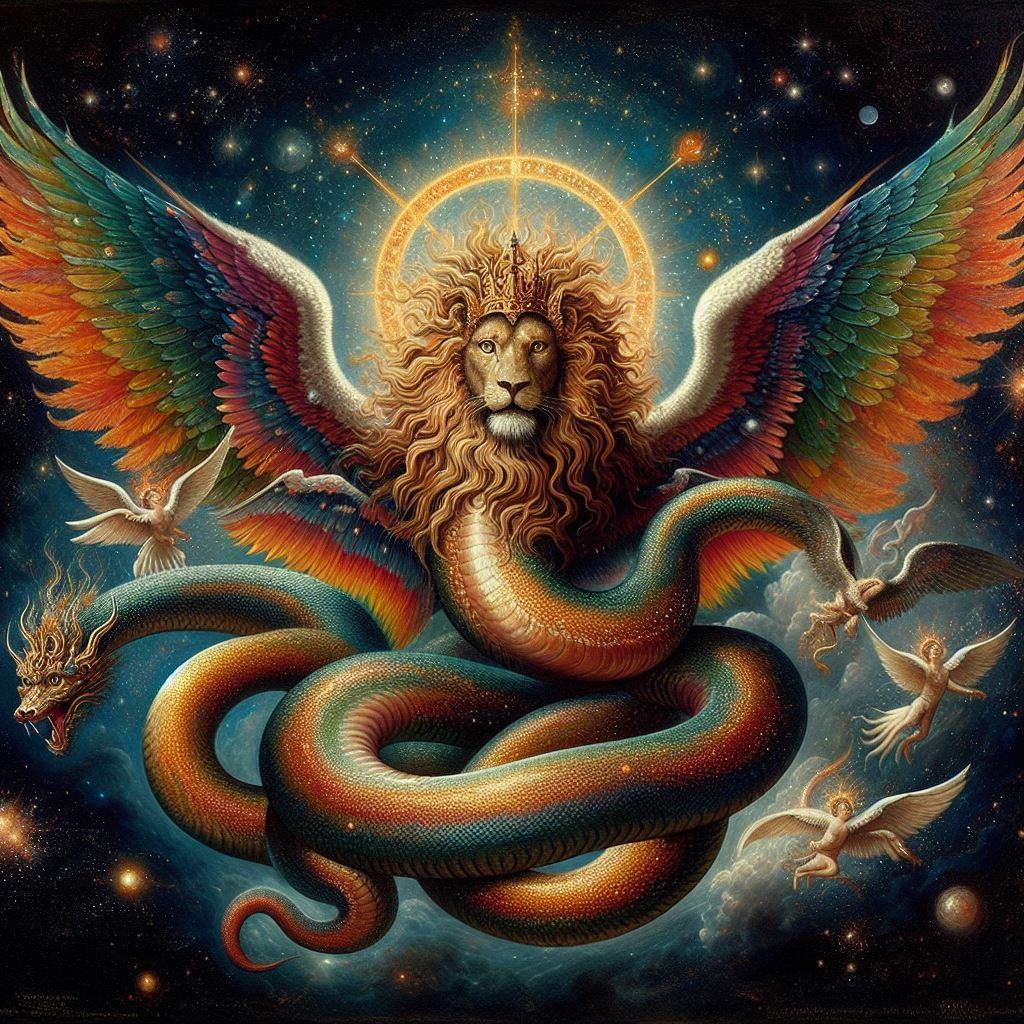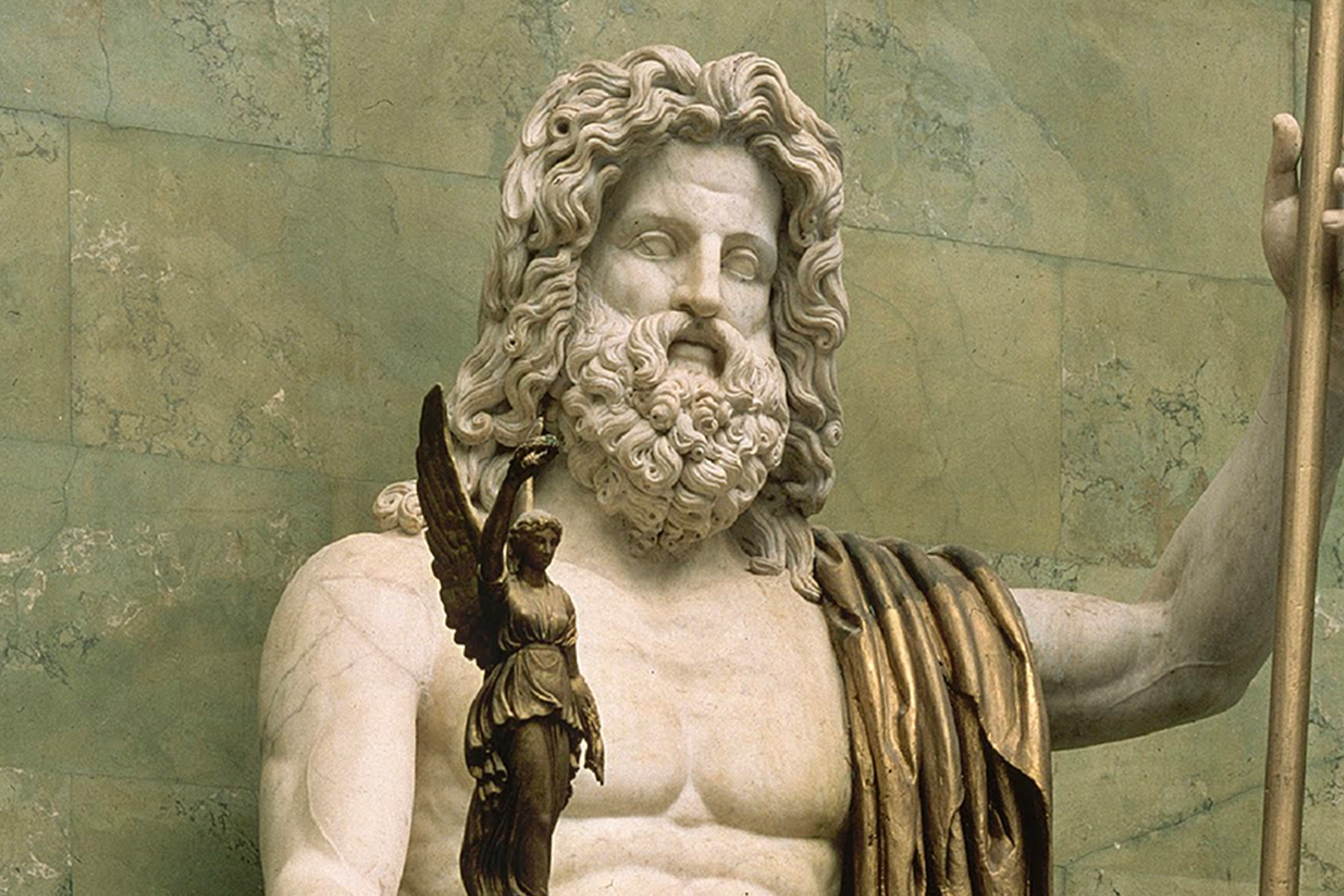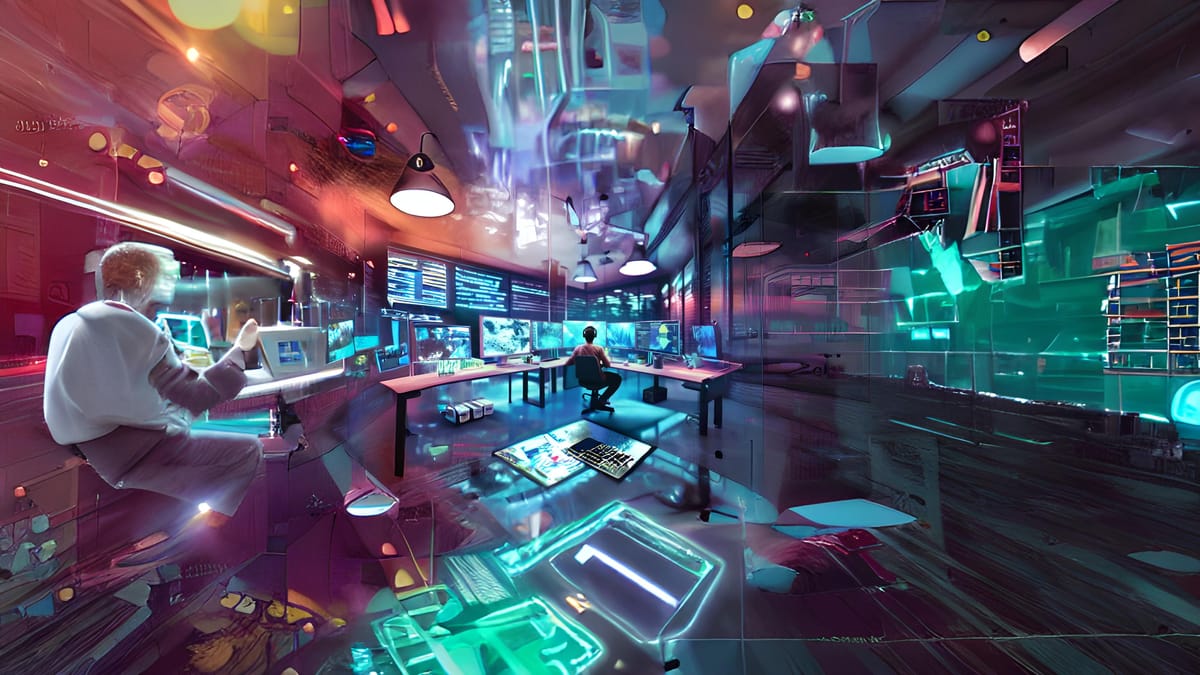The Equilibrium World – which is, we might say, ‘a world in which everything has been standardized’ – is a place of forgetting. We forget that there is (or ever was) anything else apart from the Equilibrium World and we forget that there ever could be anything else. Our attention is restricted to the EW and the EW has nothing in it since the ‘unquestionable baseline’ that everything is being measured against doesn’t really exist. The EW is therefore ’the graveyard of consciousness’ – it’s one big mausoleum (which is not -needless to say – how it represents itself to us).
All is forgotten in the state of equilibrium – this is ‘the sleep of the dead’, it is ‘the sleep that cannot be disturbed’. No matter how hard you shake me, or how loud you shout in my ears, you’ll never wake me. An atom bomb wouldn’t wake me. No matter how many princes come to try their luck waking up Little Brier Rose from the sleeping enchantment that has been put on her it will do no good. They will all fail in their task and they will all pay the ultimate penalty, as we learn here in this rendition of the story –
… At that same moment the king and his attendants returned, and everyone began to fall asleep: the horses in the stalls, the pigeons on the roof, the dogs in the courtyard, the flies on the walls. Even the fire on the hearth flickered, stopped moving, and fell asleep. The roast stopped sizzling. The cook let go of the kitchen boy, whose hair he was about to pull. The maid dropped the chicken that she was plucking. They all slept. And a thorn hedge grew up around the entire castle, growing higher and higher, until nothing at all could be seen of it.
Princes, who had heard about the beautiful Brier-Rose, came and tried to free her, but they could not penetrate the hedge. It was as if the thorns were firmly attached to hands. The princes became stuck in them, and they died miserably. And thus it continued for many long years. ….
The Equilibrium State is thus the Great Catastrophe that no one can be told about – you could run around the streets crying out about it (Cassandra-style) for your whole life and no one will take the slightest bit of interest. If you persist you will undoubtedly be locked up somewhere – we might listen to the online conspiracy theorists telling us about this or that plot by those who seek to control us, but we won’t take this on board. No one’s going to take this on board – the EW is just too big a conspiracy for the thinking mind to comprehend (since thought is itself at the very root of it).
All roads lead to Rome when it’s the Equilibrium State we’re talking about – this is where it all starts, and it is also where it all ends. It’s like a giant magnet relentlessly pulling us in – the magnet doesn’t care about where we came from, it only cares about where we’re going. It has no ‘curiosity’. The EW is ‘destination-orientated’ and it itself is the destination. It relentlessly promotes itself as being ‘the Gateway to All Good Things’ whilst the truth is that it’s the ultimate dead end. Even to call it this is understating the matter – the equilibrium state is what Philip K Dick, following Ludwig Binswanger, calls the Tomb World.
Once we bite (and get unceremoniously reeled in) then it’s all over for us – the Great Catastrophe has befallen us, but we will never know a thing about it. We have fallen victim to a colossal scam but we ‘don’t know any better’; we’ll never know any better because all we now know is the Equilibrium State. Our brains have been scrubbed clean of any knowledge regarding any other way of being. We are now in the unenviable situation of ‘being incapable of knowing about anything else other than the EW’ – we will react to any intimation of there ‘being something else’ with flat-out aggression; awareness of anything other than the stifling security of the Equilibrium World is the absolute worst thing in the world, as far as we’re concerned – it is without any doubt the most ‘disturbing’ thing that could ever happen to us and we will fight against it with everything we’ve got.
Awareness of ‘the Other’ is uncanny, spooky, freaky, weird, strange, and so on. Awareness of ‘the Other’ cannot be integrated into the equilibrium system – the whole point of the equilibrium system is that there is no ‘Other’, that there is nothing radically different to what we have been brought up to believe. To say that there is (or might be) something else (something better!) is heresy of the highest order. The Devil himself is whispering in our ears. And we are warned by the authorities to resist this trickery with all our might. The Devil is very clever, we’re told, and it’s up to us up to us to stand firm and resolve to uphold the status quo at all costs. We resolve to plug up our ears – we can’t resist his arguments and so our only chance is not to listen to them in the first place.
This isn’t just how the equilibrium system works, it’s the only way it can work – it’s only when ‘the Other’ is fanatically excluded (in the way that a true believer will strive to exclude the Devil and his works) that the equilibrium system can exist. The Regulated (or ‘Simulated’) World can’t survive any exposure to an independent viewpoint; any truly independent viewpoint would show it up for what it is – a hollow sham. Viciously fanatical belief is the only thing that can keep it going; violence is the only thing that can keep it going. ‘The Lord thy God is a jealous God’, we read in the Old Testament. Yaldabaoth is a jealous God, Samael is a jealous God, the Demiurge is a jealous god – there can be no rivals, no other way of seeing the world.
What we might call ‘the Demiurgic Principle’ is based on endlessly reproducing the same old thing whilst marketing it as something new, and this is a principle that we ought to be familiar with, given that this is all we – as a culture – ever do. We endlessly repeat what we know and resist what we don’t know, whilst claiming the whole time to be all about ‘progress’ (by which we really mean optimization). The Demiurge can do nothing else but mimic, as John lamb Lash and Lydia Dzmardjin explain here in the following passage taken from Metahistory.org –
In the Gnostic narrative, Yaldabaoth, the Lord Archon, commands his clone-like minions to create a virtual display (stereoma) of hierarchial worlds that reflect the living fractal kaliedoscope of conscious, animated currents in the Pleroma, the galactic core. The Demiruge can only imitate, he cannot create or originate. The Gnostic texts are clearly sarcastic in describing the celestial hierarchies of the Archons, because for Gnostics all this celestial kitsch has nothing to do with the wonder of life that will unfold on earth, the realm where Sophia is embodied. Earth is where humanity emerges. It is the unique habitat of the Anthropos.
Creativity is something the Demiurge can have no truck with (since creativity – by its very nature – inescapably involves ‘the Other’. Even though the other is all there is. [‘Everything is the other and no one is himself.’ says Martin Heidegger]. Since the raison d’etre of the demiurge is to ‘suppress all awareness of the Other’, we can hardly expect him to embrace the principle of creativity; what he does instead is to continuously dress up the old to make it look new. Very old mutton is passed off as best spring lamb.
As we have said, we ought to be very familiar with this type of thing – we see it going on all around us (once we know to look out for it). This is Robert de Ropp’s ‘tiresome ringing of changes’ – the never-ending attempt to refresh what cannot be refreshed. We may think – in this connection – of some vast entertainment corporation which works by taking in ‘original material’ one end and tirelessly regurgitates planned, generic nonsense out of the other. The unique is copied and rendered generic, thus obscuring the brilliance that was in the original. The Billion Dollar Corporation is ‘massive on hype’ but very poor indeed when it comes to content. ‘The Demiurge can only imitate’, after all, as we read in the passage given above.
We might bring in Jean Paul Sartre’s idea of the Nausea at this point – there is nothing more loathsome than the Nausea, and yet wherever we look there it is. We’re hemmed in on all sides – there is nothing in the Equilibrium World except for the nausea there’s nothing but the Nausea as far as the eye can see and this is a horror beyond compare.
The Nausea – as the name would tend to imply – is sickening to behold, but the curious (but nevertheless utterly undeniable) thing about this is that we don’t see the Nausea and we don’t find it sickening. Quite the contrary is true – we are taken in by it, in other words, and there’s no one – no one of any official standing, at any rate – who’s going to take you seriously if you were to come out with talk such as this. The empty authority of officialdom is by definition always on the side of ‘the Equilibrium’.
The EW is the most terrible cul-de-sac there is – it’s the Great Grandfather of all Dead Ends – not only does it not lead anywhere, it isn’t anywhere either. It’s not such a bad thing that it doesn’t lead anywhere (and that it isn’t anything) – that’s not actually a bad thing at all. What’s a ‘bad thing’ is that we don’t know that it doesn’t lead anywhere (and we don’t know that ‘it isn’t anywhere’). What’s bad is that we actually believe the very reverse of this – we give everything we’ve got to the EW in the firm belief that we’re going to get a good return on our investment. We’re not going to get anything back for our unstinting loyalty, however; the EW is ‘a bottomless pit that can never be filled’. It is like a black hole in that whatever falls into it is ‘lost forever’ (or – as we could equally well say – the EW is like a narcissistic, attention-absorbing partner who is constitutionally unable to return love).
This theme – the theme of the Demiurge is a kind of ‘archetypal plagiarist’ – has also found its way into exoteric Christianity it is the simia dei, the ape of God. What is meant by the term ‘the ape of God’ comes out very clearly in this line spoken by Frodo in JR Tolkien’s LOTR (Tolkien himself being a devout Catholic) –
The Shadow that bred them can only mock, it cannot make: not real new things of its own.
The devil as the simia dei isn’t merely copying what God has created, he is mocking it. He is sneering at the Almighty and parodying His works. This idea finds expression in the very well-known Hans Christian Andersen fairy tale The Snow Queen. In the Fairytale Wiki entry on The Devil’s Mirror we read the following:
The Devil’s Mirror is a magical object created by an evil troll (or the devil) that distorts the appearance of everything it reflects. It fails to reflect the good and beautiful aspects of people and things, while magnifying their bad and ugly aspects.
The devil, who is headmaster at a troll school, takes the mirror and his pupils throughout the world, delighting in using it to distort everyone and everything; the mirror makes the loveliest landscapes look like “boiled spinach.” They try to carry the mirror into heaven with the idea of making fools of the angels and God, but the higher they lift it, the more the mirror shakes with laughter, and it slips from their grasp and falls back to earth, shattering into billions of pieces, some no larger than a grain of sand.
These splinters are blown by the wind all over the Earth and got into people’s hearts and eyes, freezing their hearts like blocks of ice and making their eyes like the troll-mirror itself, seeing only the bad and ugly in people and things. …
The Demiurge (the ‘original archetype’, we might say) doesn’t just copy (or simulate reality), he degrades it, and thus mocks the Original. By trapping us in this ‘degraded parody of reality’ the Demiurge mocks us for being stupid enough to end up in this debased version of reality. He – the False God – operates through ‘the distorting lens of the everyday mind’ and we see ourselves through his instrument, which is – as the above account relates – ‘a distorted or inverting lens that shows everything backwards’ (thereby causing us to despise or hate ourselves). This pitiless self-loathing can then be conveniently displaced onto others, who will then have to bear the brunt of our ‘unowned self-hatred’, thus giving rise to the phenomenon of evil in this world (which we – with all our high-powered psychological ‘knowledge’ – have absolutely no comprehension of)…
This is of course exactly what thought inevitably does – it crudely simulates that which is beyond simulation. It imitates what can’t be imitated and in doing so it ‘parodies the original’. All literal representations of the transcendent reality are parodies; all ‘statements of fact’ are lies. To ‘forget’ (or ‘be separated from’) all that is good (or all that is real) is to despair and this despair – if not honestly experienced for what it is and where it is – is turned outwards to become a cloak of darkness, spreading all over the world under that plausible guise of rational thought which – when accepted as being the one and only right and proper way to see things – makes fools of us all.
Image credit – behance.com






